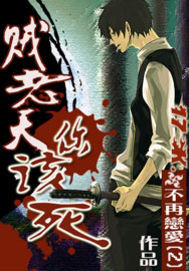CHAPTER XX
您可以在百度里搜索“Now It Can Be Told 艾草文学(www.321553.xyz)”查找最新章节!
CHAPTER XX
The winter of discontent had passed. Summer had come with a wealth of beauty in the fields of France this side the belt of blasted earth. The grass was a tapestry of flowers, and tits and warblers and the golden oriole were making music in the woods. At dusk the nightingale sang as though no war were near its love, and at broad noonday a million larks rose above the tall wheat with a great high chorus of glad notes.
Among the British armies there was hope again, immense faith that believed once more in an ending to the war. Verdun had been saved. The enemy had been slaughtered. His reserves were thin and hard to get (so said Intelligence) and the British, stronger than they had ever been, in men, and guns, and shells, and aircraft, and all material of war, were going to be launched in a great offensive. No more trench warfare. No more dying in ditches. Out into the open, with an Army of Pursuit (Rawlinson's) and a quick break-through. It was to be “The Great Push.” The last battles were to be fought before the year died again, though many men would die before that time.
Up in the salient something happened to make men question the weakness of the enemy, but the news did not spread very far and there was a lot to do elsewhere, on the Somme, where the salient seemed a long way off. It was the Canadians to whom it happened, and it was an ugly thing.
On June 2d a flame of fire from many batteries opened upon their lines in Sanctuary Wood and Maple Copse, beyond the lines of Ypres, and tragedy befell them. I went to see those who lived through it and stood in the presence of men who had escaped from the very pits of that hell which had been invented by human beings out of the earth's chemistry, and yet had kept their reason.
The enemy's bombardment began suddenly, with one great crash of guns, at half past eight on Friday morning. Generals Mercer and Williams had gone up to inspect the trenches at six o'clock in the morning.
It had been almost silent along the lines when the enemy's batteries opened fire with one enormous thunderstroke, which was followed by continuous salvos. The shells came from nearly every point of the compass—north, east, and south. The evil spell of the salient was over our men again.
In the trenches just south of Hooge were the Princess Patricia's Light Infantry, with some battalions of the Royal Canadian Regiment south of them, and some of the Canadian Mounted Rifles (who had long been dismounted), and units from another Canadian division at the extreme end of their line of front. It was those men who had to suffer the tempest of the enemy's shells.
Earth below them opened up into great craters as high-explosive shells burst continually, flinging up masses of soil, flattening out breastworks and scattering sand-bags into dust.
Canadians in the front trenches held on in the midst of this uproar. “They took it all,” said one of the officers, and in that phrase, spoken simply by a man who was there, too, lies the spirit of pride and sacrifice. “They took it all” and did not budge, though the sky seemed to be opening above them and the earth below them.
The bombardment continued without a pause for five hours, by which time most of our front trenches had been annihilated. At about a quarter past one the enemy's guns lifted a little, and through the dense smoke-clouds which made a solid bar across No Man's Land appeared a mass of German infantry. They wore their packs and full field-kit, as though they had come to stay.
Perhaps they expected that no one lived in the British trenches, and it was a reasonable idea, but wrong. There were brave men remaining there, alive and determined to fight. Although the order for retirement had been given, single figures here and there were seen to get over the broken parapets and go forward to meet the enemy halfway. They died to a man, fighting. It seemed to me one of the most pitiful and heroic things of this war, that little crowd of men, many of them wounded, some of them dazed and deaf, stumbling forward to their certain death to oppose the enemy's advance.
From the network of trenches behind, not altogether smashed, there was time for men to retire to a second line of defense, if they were still unwounded and had strength to go. An officer—Captain Crossman—in command of one of these support companies, brought several men out of a trench, but did not follow on. He turned again, facing the enemy, and was last seen—“a big, husky man,” says one of his comrades—as he fired his revolver and then flung it into a German's face.
Colonel Shaw of the 1st Battalion, C.M.R., rallied eighty men out of the Cumberland dugouts, and died fighting. The Germans were kept at bay for some time, but they flung their bombs into the square of men, so that very few remained alive. When only eight were still fighting among the bodies of their comrades these tattered and blood-splashed men, standing there fiercely contemptuous of the enemy and death, were ordered to retire by Major Palmer, the last officer among them.
Meanwhile the battalions in support were holding firm in spite of the shell-fire, which raged above them also, and it was against this second line of Canadians that the German infantry came up—and broke.
In the center the German thrust was hard toward Zillebeke Lake. Here some of the Canadian Rifles were in support, and as soon as the infantry attack began they were ordered forward to meet and check the enemy. An officer in command of one of their battalions afterward told me that he led his men across country to Maple Copse under such a fire as he had never seen. Because of the comrades in front, in dire need of help, no notice was taken as the wounded fell, but the others pressed on as fast as they could go.
Maple Copse was reached, and here the men halted and awaited the enemy with another battalion who were already holding this wood of six or seven acres. When the German troops arrived they may have expected to meet no great resistance. They met a withering fire, which caused them bloody losses. The Canadians had assembled at various points, which became strongholds of defense with machine-guns and bomb stores, and the men held their fire until the enemy was within close range, so that they worked havoc among them. But the German guns never ceased and many Canadians fell. Col. E. H. Baker, a member of the Canadian Parliament, fell with a piece of shell in his lung.
Hour after hour our gunners fed their breeches and poured out shells. The edge of the salient was swept with fire, and, though the Canadian losses were frightful, the Germans suffered also, so that the battlefield was one great shambles. Our own wounded, who were brought back, owe their lives to the stretcher-bearers, who were supreme in devotion. They worked in and out across that shell-swept ground hour after hour through the day and night, rescuing many stricken men at a great cost in life to themselves. Out of one party of twenty only five remained alive. “No one can say,” said one of their officers, “that the Canadians do not know how to die.”
No one would deny that.
Out of three thousand men in the Canadian 8th Brigade their casualties were twenty-two hundred.
There were 151 survivors from the 1st Battalion Canadian Mounted Rifles, 130 from the 4th Battalion, 350 from the 5th, 520 from the 2nd. Those are the figures of massacre.
Eleven days later the Canadians took their revenge. Their own guns were but a small part of the huge orchestra of “heavies” and field batteries which played the devil's tattoo upon the German positions in our old trenches. It was annihilating, and the German soldiers had to endure the same experience as their guns had given to Canadian troops on the same ground. Trenches already battered were smashed again. The earth, which was plowed with shells in their own attack, was flung up again by our shells. It was hell again for poor human wretches.
The Canadian troops charged at two o'clock in the morning. Their attack was directed to the part of the line from the southern end of Sanctuary Wood to Mount Gorst, about a mile, which included Armagh Wood, Observatory Hill, and Mount Gorst itself.
The attack went quickly and the men expected greater trouble. The enemy's shell-fire was heavy, but the Canadians got through under cover of their own guns, which had lengthened their fuses a little and continued an intense bombardment behind the enemy's first line. The men advanced in open order and worked downward and southward into their old positions.
In one place of attack about forty Germans, who fought desperately, were killed almost to a man, just as Colonel Shaw had died on June 2d with his party of eighty men who had rallied round him. It was one shambles for another, and the Germans were not less brave, it seems.
One officer and one hundred and thirteen men surrendered. The officer was glad to escape from the death to which he had resigned himself when our bombardment began.
“I knew how it would be,” he said. “We had orders to take this ground, and took it; but we knew you would come back again. You had to do so. So here I am.”
Parts of the line were deserted, except by the dead. In one place the stores which had been buried by the Canadians before they left were still there, untouched by the enemy. Our bombardment had made it impossible for his troops to consolidate their position and to hold the line steady.
They had just taken cover in the old bits of trench, in shell-holes and craters, and behind scattered sand-bags, and had been pounded there. The Canadians were back again. Now It Can Be Told



